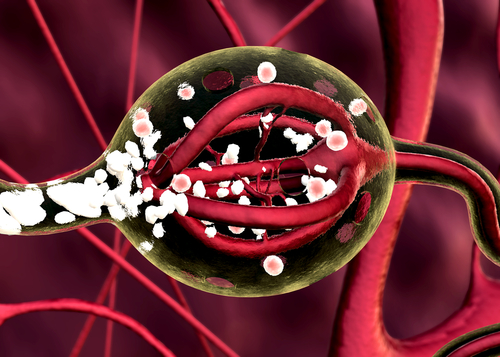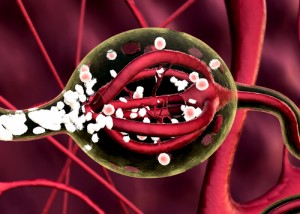New Brain Protein May Play Important Role In Alzheimer’s Disease, Mayo Clinic Study Finds

 An abnormal protein in the brain may play an important role in the onset of Alzheimer’s disease, a group of scientists at the Mayo Clinic discovered. Although they still haven’t figured out whether this protein, called TAR DNA binding protein of 43kDa (TDP-43), is a cause of Alzheimer’s disease or if it develops due to the illness itself, this finding brings new hope to understanding the disease and finding effective treatments.
An abnormal protein in the brain may play an important role in the onset of Alzheimer’s disease, a group of scientists at the Mayo Clinic discovered. Although they still haven’t figured out whether this protein, called TAR DNA binding protein of 43kDa (TDP-43), is a cause of Alzheimer’s disease or if it develops due to the illness itself, this finding brings new hope to understanding the disease and finding effective treatments.
Researchers, who recently discussed the findings at the Alzheimer’s Association International Conference in Copenhagen, but who have not yet published the study in a peer-reviewed journal, sought to learn more about the role of the TDP-43, a third protein next to beta-amyloid and tau, which are considered to be the core pathological entities that define Alzheimer’s disease.
The aim of the study, called “TDP-43 amplifies memory loss and hippocampal atrophy in Alzheimer’s disease,” was thus to determine whether this third protein independently has any effect on the clinical and neuroimaging characteristics typically ascribed to Alzheimer’s pathology, and whether TDP-43 pathology could help shed light on the phenomenon of resilient cognition in this illness.
The Mayo Clinic team screened 342 people who had been diagnosed with intermediate-high probability Alzheimer’s disease, looking for the presence, burden, and distribution of TDP-43. They used regression models controlling for age at death, apolipoprotein e4, amyloid deposition, Lewy bodies, and vascular disease to explore associations between TDP-43 and cognition or brain atrophy, stratified by Braak stage. In addition, they performed mediation analysis to determine whether the effects of TDP-43 were mediated by hippocampal sclerosis.
Results showed that 57% cases were TDP-positive. Researchers proved that TDP-43 had a strong effect on cognition, memory loss, and hippocampal atrophy in Alzheimer’s disease. Furthermore, TDP-positive subjects were 10 times more likely to be cognitively impaired at death compared to TDP-negative subjects. Finally, the team concluded that greater cognitive impairment and medial temporal atrophy were associated with greater TDP-43 burden.
These findings demonstrate that TDP-43 deposition in Alzheimer’s progresses in a stereotypic manner and, more importantly, it amplifies memory loss and hippocampal atrophy in Alzheimer’s. This protein also appears to be able to overpower what has been termed resilient cognition in Alzheimer’s.
TDP-43 can therefore be considered a key player in the Alzheimer’s disease neurodegenerative process and should be considered a potential therapeutic target for the treatment of this disease. In addition, the study demonstrates the potential for PET technology to be used for early detection and to help pick participants for prevention trials and treatment trials that target brain proteins.






